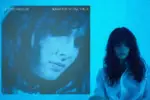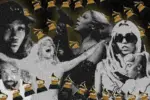Music industry icons are few and far between, and even then, disagreement is widespread. Some fans might point to artists like The Beatles as “game-changers,” while others pick multi-Grammy winners like Adele. Others will single out musical innovators, like Frank Ocean, or some who changed the industry entirely, like Kanye West.
The common theme — real talent and the cultural impact that comes with it — is found rarely and not by accident. Rosalía, Spain’s flamenco-turned-pop darling, exemplifies this rarified, singular talent as fans around the world lend recognition to her impact on the music industry.
Rosalía’s razor-sharp vocals, impressive stage presence and musical know-how would suit anyone to a career in the music business. But she’s not like just anyone, and her impressive trajectory in the last few years drives that point home.
First gaining traction in her country of origin, Spain, Catalonia-native Rosalía spent years studying the art of flamenco. This musical style incorporates folk traditions from all of Spain, but particularly the Southern communities of Andalusia and Murcia. Years of apprenticeship and vocal coaching devoted to the technical and emotional study of the melodies and rhythms of the Spanish tradition paid off. Rosalía is one of a handful of people in the world with a knowledge of flamenco vast enough to not only mimic the greats but riff on them.
Armed with daring musical intelligence and an impressive array of skills, Rosalía’s distinctive sound emerged as she absorbed the classic, ethnic core of flamenco into her stylized 21st-century pop sound. Rhythmic clapping and winding vocal pathways mesh perfectly with silky-smooth rap and trap backups, a blend of style and culture that has fans around the world hooked on Rosalía’s work.
Her presence has shaken up the traditional flamenco world, yet she hasn’t forgotten her roots. Everything Rosalía does — from her music videos to her lyrics — is full of Spanish iconography and tropes common to flamenco. Even her masterpiece concept album “El Mal Querer” is based on a 13th-century love poem, titled “Flamenca,” about the downfall of a toxic relationship.
In a strictly musical sense, Rosalía shines a light on the majesty of flamenco as well. The Spanish-style music — rapid guitar strumming, dizzying vocals, shouts of glee and tones of sorrow — works in the pop schema Rosalía sets up on a narrative and lyrical level. The album rises and falls in tandem with the energy, pulsating just under the surface as audiences hear the story of the doomed couple in Rosalía’s sweetly sung Spanish.
The most popular track on the album, “Malamente,” is perhaps the most pop-oriented of the bunch. Even still, the glamorized vocals are set to syncopated claps — adding the drama and intensity of flamenco even as Rosalía keeps her vocal cool.
Later, on “Reniego” and “De Aquí No Sales,” you can clearly hear the vocal traditions Rosalía spent years painstakingly nailing as an apprentice. Based on a classic flamenco melody, Rosalía’s soprano raises the bar and shatters it — her voice cutting, daring and intense. Her most flamenco-style vocals constitute the most emotional parts of the album, with melismas ebbing and flowing like the fluid strums of the guitar backing her up.
Ultimately, each track on the album is a gem, tucked away inside the conceptual masterpiece that is “El Mal Querer.” Rosalía achieves what so few artists can lay claim to, a fusion sound that does justice to her musical chops and the histories of two distinct genres. As Spanish-speakers describe, Rosalía’s appeal comes not just from her music, but from an indescribable quality that is heard once in a generation.
In Spanish, the word is “duende.” The Atlantic wrote that duende, in a musical sense, describes “the prickle on the skin, the ax-edge of experience, sublimity freeze-framed.” The flamenco greats aroused this sense of duende, and many fans are pointing to Rosalía as their duende-incarnate.
This has undoubtedly aided in her unparalleled success. Among Spanish-language artists from Spain, she’s one of the few contemporary musicians that has achieved global status. “El Mal Querer,” her second studio album and first project backed by label Sony, has streamed more than 2 million times on Spotify.
Rosalía has been nominated for five Latin Grammy awards, and her music has been featured on soundtracks like the über-popular “Euphoria” score, which has catapulted her to fame among Gen Z specifically. She’s also caught the attention of bigger artists, collaborating with Travis Scott and the like on tracks like “TKN” and J Balvin on “Con Altura.”
Rosalía’s rise to stardom shows her musical tenacity and penchant for innovation, hallmarks of not just a good artist, but an icon with “duende.” Music, it’s often said, transcends language and culture. But for Rosalía, connectivity with non-Spanish parts of the world isn’t so much about transcending culture as it is about showcasing it.
The art of flamenco is not as popular as it once was, yet it carries powerful connotations of rebellion and cultural constancy in difficult times, as it did during Franco’s fascist regime in Spain. By injecting a historical art with a jolt of pop revival, Rosalía has brought flamenco to fans worldwide and has reinvigorated the dying art, continuing an important cultural lineage that spans generations.
















